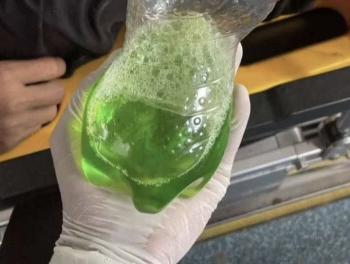Bubble Tea Tapioca Pearl, Lead Ingredient Detection Shock...You can't drink every day
Oct 23, 2025
|
Consumer Reports', a U.S. consumer media outlet, recently announced that lead was detected in all samples after inspecting four types of bubble tea tapioca pearls, including famous franchises such as Gong Cha and Kung Fu Tea, as well as packaging products from famous U.S. grocery chain Trader Joe's and Chinese bubble tea maker WuFuYuan.
Tapioca pearls, a key ingredient in bubble tea, are made from root vegetables called cassava, which have the property of absorbing heavy metals in the soil. Although lead is naturally present in soil, crops grown in contaminated soil are said to contain high levels of lead. In fact, Consumer Reports said lead exceeding the level of concern was also detected in various foods such as cassava powder, snacks, dark chocolate, and baby food.
However, while the bubble tea products surveyed did not directly pose a health risk to heavy metals such as lead, arsenic, cadmium, and mercury in the one-time intake criteria, three out of four products showed lead content exceeding 50% of Consumer Reports' 'concern threshold'.
Dr. James Rogers, director of food safety research at Consumer Reports, which conducted the survey, said, `It is not enough to recommend avoiding bubble tea altogether, but it is desirable to avoid daily drinking habits and enjoy them occasionally" he advised.
Regarding the results of the survey, the manufacturer Ofuwen said "We have further strengthened quality control standards in the wake of the lead detection results", and Trader Joe's said it had discontinued the instant bubble tea kit.
On the other hand, Gongcha and Kung Fu did not respond to inquiries, Consumer Reports said.
Consumer Reports notes that "lead can be exposed through a variety of channels, including food, water, soil, residential environments, and repeated and continuous exposure can affect health."It is important to reduce exposure as much as possible" he stressed.
Reporter Jang Jong-ho bellho@sportschosun.com
This article was translated by Naver AI translator.














